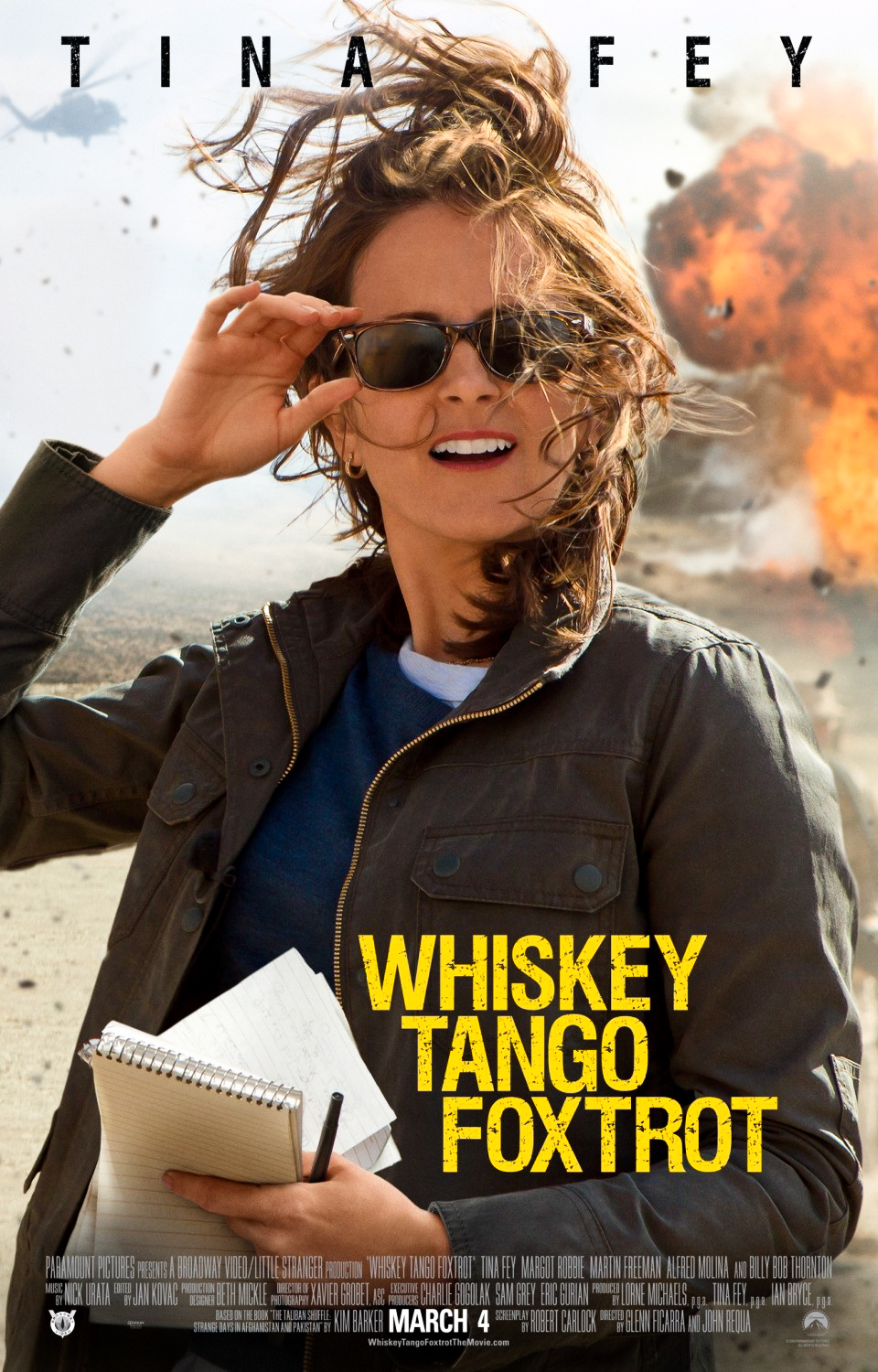
c/o apocaflixmovies.com
It’s been a year of blazing whiteness in Hollywood, and the latest Tina Fey vehicle, “Whiskey Tango Foxtrot,” is no exception. Much like “Spotlight,” it’s a movie about journalism with an essentially all-white cast. The only problem? “Whiskey Tango Foxtrot” is set in Afghanistan, where your average person is rarely a white actor in disguise.
As the lead, Tina Fey brings her trademark humor, and for once, is allowed to play her age. Fey’s Kim Baker is a 42-year-old reporter trapped in her cubicle and her relationship with her “mildly depressive boyfriend” (Josh Charles of “The Good Wife,” with a charismatic smile and very few lines). Offered the chance to cover the war in Afghanistan (the film is set in 2002), Baker takes off for Afghanistan armed with little more than her bright orange backpack and her sarcasm.
In Kabul, affectionately known as the “Kabubble,” Baker meets Nic (Steven Peacocke), her security guard and the resident hot guy; Iain MacKelpie (Martin Freeman), a sleazy but charming Scotsman; and Tanya Vanderpoel (Margot Robbie), the blonde bombshell who, as one character points out nastily, makes Baker look like a dried turd. They’re a lively community of expats eager for coke, casual sex, and hardcore war stories, and it’s easy to get drawn into their touristy fun.
But “Whiskey Tango Foxtrot” has more to say, especially in regards to the sexism Baker faces as a female reporter. Her military escort, General Hollanek (Billy Bob Thornton), is convinced all women are temptresses: “While you’re outside the wire with my men, you will in no way distract them… You’re not here to sleep with or perform jobs of any type on my Marines.” And her contact in the Afghan government, Ali Massoud Sadiq (Alfred Molina), keeps begging to be her “special friend.” However, with grit and plenty of profanity (à la Erin Brokovich), Baker proves she can hold her own among men.
Unfortunately, the movie is far less sensitive to those outside Baker’s straight white female experience. Although there are a couple of uncalled-for jokes about tux-wearing lesbians and non-biological women having poor taste in guys, the more glaring issue in “Whiskey Tango Foxtrot” is the way it handles race. The two top-billed Afghan characters, Sadiq and Baker’s “fixer” Fahim Ahmadzai (Christopher Abbott), are played by white men and tend toward caricatures: the former is hypersexualized and intent on sleeping with Western women, the latter highly religious and discomfited by even the simple touch of a woman.
Adding insult to injury is the decision to cast Christopher Abbott (of “Girls” fame) as a bearded authority on Afghan life. It’s hard to stomach the most whitebread of Americans beginning every proverb-laden monologue with “In my culture…,” let alone one who played Marnie’s hipster boyfriend and used the word “slut” unironically. Yet since the movie makes little attempt to depict the language barrier in Afghanistan—Baker goes from a few swear words to suddenly interviewing rural women in Pashto—it’s unsurprising that her translator is faking his way through his non-English lines.
While producer Tina Fey is likely to blame for some of the race blindness in “Whiskey Tango Foxtrot” based on her record for stereotyping in “Sisters” and other projects, the film’s source material is also at fault. The screenplay is adapted from journalist Kim Barker’s memoir, “The Taliban Shuffle: Strange Days in Afghanistan and Pakistan,” whose events demonstrate a firm belief in American exceptionalism: why learn about where you’ll be traveling when U.S. dollars and enthusiasm are all you’ll need? “Calling me naïve was almost a compliment; ignorant was more accurate,” Barker writes of her second trip to Afghanistan, and disappointingly, this ethos is echoed onscreen by the dialogue and casting.
Nonetheless, if you allow yourself to be fooled by the accents and chaotic market scenes, “Whiskey Tango Foxtrot” delivers a powerful message about war reporting. After years in Afghanistan, Baker, MacKelpie, and Vanderpoel become addicted to the rush of sending dispatches from the frontlines, destroying relationships and risking lives to procure their next fix. It’s only when Baker decides to leave that she fully understands how twisted their mindset is.
“You do realize that this is not normal, right?” Baker asks MacKelpie as she packs her suitcase to return to the United States. It’s a moment of clarity for her as a journalist, and perhaps for us as viewers as well. After all, does it have to be normal for characters of color to be played by white actors? The answer is: only if we let it.
This article has been updated to correct several factual errors.